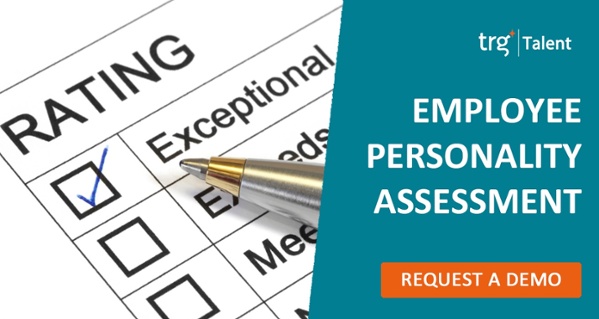Employers can effectively use psychometric assessment instruments to measure job-relevant skills and capabilities of applicants and employees. These tools can help to identify and select better workers and can help improve the quality of an organisation’s overall performance. To use these tools properly, employers must be aware of the inherent limitations of any assessment procedure, as well as the legal issues involved in the assessment.

13 Essential Principles for Assessment Buyers
Together, these 13 principles provide a comprehensive framework for conducting an effective psychometric assessment program.
1. Use assessment tools in a purposeful manner
Assessment instruments, like other tools, are helpful when used properly but can be useless, harmful, or illegal when used inappropriately. Often, inappropriate use results from not having a clear understanding of what you want to measure and why you want to measure it. As an employer, you must first be clear about what you want to accomplish with your assessment program in order to select the proper tools to achieve those goals.
Your assessment strategies should be based on both an understanding of the kind of employment decisions to be made and the population to be assessed.
Read more: The rising, easily ignored problems with Job Fit solutions
2. Use the whole-person approach to assessment
An assessment instrument may provide you with important employment-related information about an individual. However, no assessment tool is 100% reliable or valid; all are subject to errors, both in measuring job-relevant characteristics and in predicting job performance.
Moreover, a single assessment instrument only provides you with a limited view of a person’s qualifications. Using a variety of tools to measure skills, abilities, and other job-relevant characteristics provides you with a solid basis upon which to make important career and employment-related decisions and minimises adverse impact.
3. Use only assessment instruments that are unbiased and fair to all groups
Using unbiased and fair assessments will help you select a qualified and diverse workforce. Employment decisions based on assessments that are biased are likely to lead to unfair and illegal discrimination against members of the lower-scoring groups.
You should review the fairness evidence associated with assessment instruments before selecting tools by examining their manual and independent reviews.
Read more: Unstructured interviews reflect the unfairness in hiring
4. Use only reliable assessment instruments and procedures
If a person takes the same assessment again, will he or she get a similar score or a very different score? A reliable instrument will provide accurate and consistent scores.
To meaningfully interpret assessment scores and make a useful career or employment-related decisions, use only reliable tools.
Assessment manuals will usually provide a statistic, known as the reliability coefficient, giving you an indication of an assessment’s reliability. The higher the reliability coefficient, the more confidence you can have that the score is accurate.
Read more: Why the MBTI test is as useful as astrology
5. Use only assessment procedures and instruments that have been demonstrated to be valid for the specific purpose for which they are being used
Validity is the most important issue in selecting assessment tools. It refers to (1) the characteristic the assessment instrument measures, and (2) how well the instrument measures the characteristic.
An assessment’s validity is established in reference to a specific purpose; it may not be valid for different purposes. For example, an assessment that may be valid for predicting someone’s “job knowledge,” may not be valid for predicting his or her “leadership skills.”
You must be sure that the instrument is valid for the purpose for which it is to be used. Selecting a commercially developed instrument does not relieve you of this responsibility.
6. Use assessment tools that are appropriate for the target population
An assessment tool is usually developed for use with a specific group; it may not be valid for other groups. For example, an assessment designed to predict the performance of office managers may not be valid for clerical workers.
The skills and abilities required for the two positions may be different, or the reading level of the assessment may not be suitable for clerical workers. Assessments should be appropriate for the individuals you want to examine, that is, your target population.
7. Use assessment instruments for which understandable and comprehensive documentation is available
Are the instructions for administration and interpretation understandable? Is the information sufficiently comprehensive to evaluate the suitability of the instrument for your needs?
Carefully evaluate the documentation provided by the assessment publisher to be sure that the tools you select do the job you want them to do and furnish you with the information you need. If the documentation is not understandable or complete, you run the risk of selecting inappropriate instruments.
Read more: 6 key features of quality pre-hire assessments
8. Ensure that administration staff are properly trained
Assessment instruments must be administered properly to obtain valid results. Consult the assessment publisher and administration manual for guidelines on the qualifications and training required for assessment administrators. These requirements will vary depending on the nature and complexity of the assessment. Only suitable staff should be selected.
9. Ensure that assessment conditions are suitable for all applicants
There are various extraneous influences that may affect the reliability and validity of an assessment procedure. For example, noise in the testing room, poor lighting, inaccurate timing and damaged assessment equipment may adversely affect applicants. Staff should ensure that the testing environment is suitable and administration procedures are uniform for all applicants.
Read more: The waiter rule and how to reveal a job candidate's true self
10. Provide reasonable accommodation in the assessment process for people with disabilities
To ensure that qualified individuals with disabilities have an equal chance to demonstrate their potential, accommodations in the assessment process may be necessary.
For example, administering a Braille version, allowing extra time to complete the assessment, or supplying a reader may be appropriate. It is important to become familiar with the types of accommodations that can be made without invalidating assessment results.
11. Maintain assessment instrument security
Lack of security may result in some applicants having access to assessment questions beforehand, thus invalidating their scores. Security is also the responsibility of assessment developers. The security of an assessment may become compromised over time. To protect the security, developers periodically introduce new forms of assessments.
12. Maintain confidentiality of assessment results
Assessment results are highly personal. Employers must respect each individual’s right to confidentiality. Assessment results should only be shared with those who have a legitimate need to know. This would include staff involved in interpreting assessment results and making employment decisions.
13. Ensure that scores are interpreted properly
Assessments are used to make inferences about people’s characteristics, capabilities, and future performance. The inferences should be reasonable, well-founded, and not based upon stereotypes. If scores are not interpreted properly, the conclusions drawn from them are likely to be invalid, thus leading to poor decision making.
Ensure that there is solid evidence to justify your assessment score interpretations and the employment decisions you make based on those scores. The assessment manual should provide instructions on how to properly interpret results.
 English
English  Vietnamese
Vietnamese 


